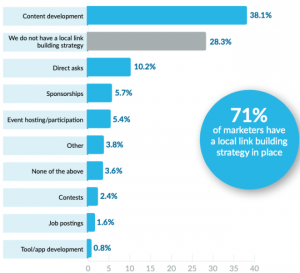I got one of “those” emails. It was from some self proclaimed expert citing research from “millions” of situations. They posed a number of sales scenarios in the form of, “Are you doing this……”
It turns out, our team normally does at least 50% of the things they posed.
They went on to say, “If you are doing any of these things, you are doing everything wrong, which is why you are failing!” They went on to suggest they could help eliminate those errors and tell me the few things that we needed to do to guarantee success.
The problem is, those things they say we are doing wrong, actually cause us to be very successful. We know this, because that’s our business. We study and refine everything we do to maximize our effectiveness, impact and efficiency. They enable us to differentiate what we do and how we do it. We have tested these extensively, and we both win more, but we create more value by doing these things.
I suppose it is human nature to try to simplify things, to categorize things; “This is right, and this is wrong….” “Do this, don’t do that….” “Black and white….”
These things may actually be true and valid–in our on contexts, situations, and experience. But they seldom apply, rigidly, outside of that.
At a few points in my career, I have acted on these premises. In the first turnaround I did, at first, blindly, I declared, “This is what we have to do, this is what we have to stop….” I made those judgments based on my past experience. The team complied, and we started to fail even more. We hit the pause button, after some quick study, I realized that what worked someplace else wouldn’t be effective in this organization.
As a consultant, while I try to avoid it, I sometimes fall into a similar trap. I say, “Do this, don’t to that….” Then they don’t work.
The world is complex, what our customers face is increasingly complex, what our own organizations face is complex. Simple answers, implemented blindly are successful only by chance–but seldom sustainable.
Instead, we have to have the ability to figure things out. To quickly understand and analyze what we face, where we need to go. To assess what from our past experience might work, what won’t, what has to be tweaked and adapted.
We now every complex buying process is unique. The customer never repeats the same process, because their situations, goals, people, etc, have changed. We know they don’t have a straight line buying process but one that looks more like a tangled mess of spaghetti.
We know the highest performing sales people start from mastery of basic principles, processes, and methods. But they adapt them to the customer, context, and situation. They are nimble and agile in their practice.
So everything we are doing is both right and wrong, at the same time, we have to focus on doing more right.
Afterword: If you are looking to vendors, trainers, consultants to help you, beware of those that “have the answers.” Instead, look at those that will help you discover your answers.
Afterword: Consider in your own customer engagement models a similar approach. It is less about providing answers/solutions to the customer, and more about helping the customer discover the answer best for them.
Business & Finance Articles on Business 2 Community
(31)




